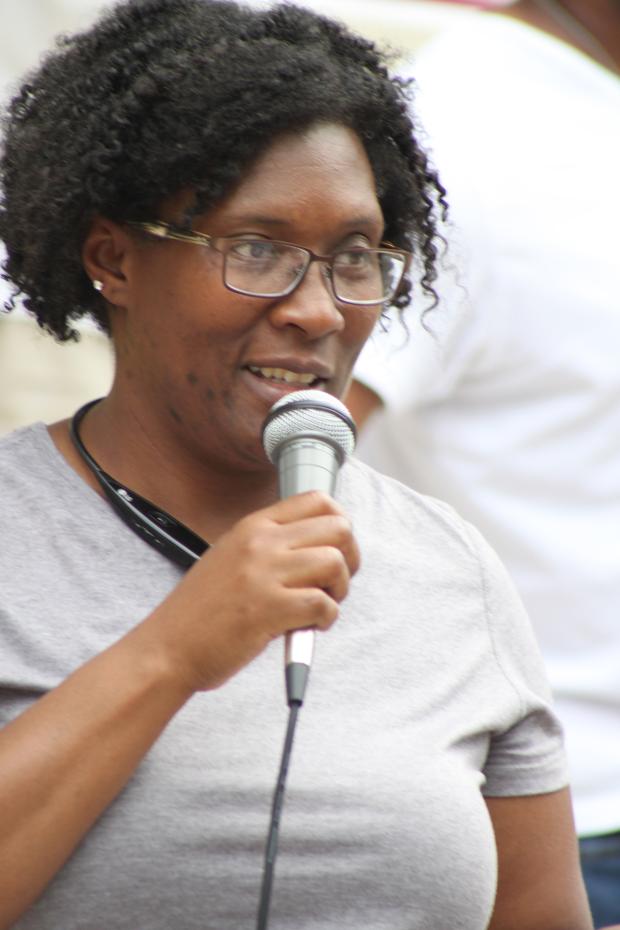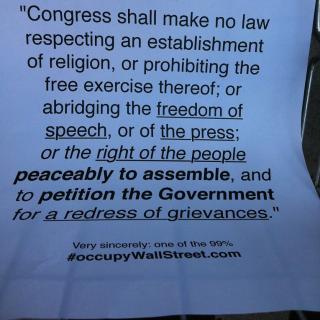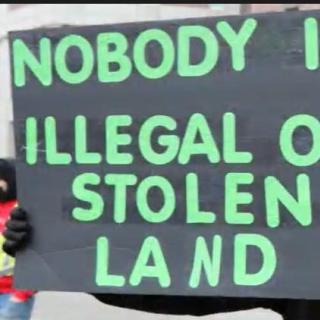Advertisement
Near the end of his life, Dr. Martin Luther King came to some radical conclusions about the fundamental root of oppression. “Why are there forty million poor people in America?” he said in 1967. “When you begin to ask that question, you are raising questions about the economic system, about a broader distribution of wealth. When you ask that question, you begin to question the capitalistic economy.
“We have moved from the era of civil rights to the era of human rights, an era where we are called upon to raise certain basic questions about the whole society,” he said in a report to the Southern Christian Leadership Conference. “We have been in a reform movement…. But after Selma and the voting rights bill, we moved into a new era, which must be the era of revolution. We must recognize that we can’t solve our problem now until there is a radical redistribution of economic and political power.”
This line of thinking moved Dr. King to organize the Poor People’s Campaign to unite the struggles against racism, economic inequality, and militarism. But he was assassinated before the campaign got off the ground.
50 years later, economic inequality in the U.S. is even worse. Rev. William Barber and Rev. Liz Theoharis launched a new Poor People’s Campaign this year. 40 days of rallies and civil disobedience began on May 14 in 30 states. Like Rev. Barber’s Moral Mondays movement, the new Poor People’s Campaign seeks to reclaim the moral narrative from the religious right.
On May 21, the Poor People’s Campaign rally at the Ohio Statehouse linked poverty with systemic racism. “There is a battle going on in America, and the poor are the ones who are under attack,” said Pastor Jason Ridley. “It’s morally wrong to have 140 million people who are living in poverty, not because they are lazy and unwilling to work, but because politicians have blocked living wages and health care, and have undermined union rights. It is morally wrong that the richest one percent in our country own more wealth than the bottom 90 percent combined. It is morally wrong that statehouses across this country block minimum wage increases and the fight for $15, all while passing laws that cut crucial safety net programs.”
“We have to fight for fair wages,” said immigrant justice organizer Rubén Castilla Herrera. “We have to fight for justice for everyone. People say that we’re a country of immigrants. But we have to start acting like it. We have to start being it!”
“For far too long, we have operated on a bottom line of money and greed,” said Rabbi Jessica Shimberg. “Just look around you for evidence of that.” She called for “a cultural and spiritual revolution that affirms the dignity and value of each and every one of us, so matter who we are, where we come from, or what we have done.”
Adrienne Hood was uniquely qualified to speak on May 29 about the war economy, militarism, and the proliferation of gun violence. “I’m wearing two hats,” she said. “I’m an active service member. But I’m also the mother of a young man who was gunned down by Columbus police. So I experience both the military and militarization. It’s a struggle.”
Hood pointed to a young woman standing on a plaque that read, “With God all things are possible.”
Then she gestured toward the Statehouse. “I’m wondering what kind of God they’re serving,” she said. “Because the God I serve says that we are supposed to fight for those who cannot fight for themselves. We are supposed to have elected officials to be the voice for our community. That’s what they’re supposed to do, and they’re not doing it. We have to push for accountability in this city, across the state, and across this nation. If we don’t do it, it’s only going to get worse.”
Hundreds of Poor People’s Campaign protesters have been arrested across the U.S., but there have been no arrests at the Ohio Statehouse. On May 21 activists defied warnings from the State Highway Patrol not to chant inside the Statehouse. On May 29 they refused to leave the Statehouse when ordered to. As of this writing, it’s not clear why state troopers are not making arrests.
Poor People’s Campaign actions will continue every Monday at the Statehouse through June 18.




